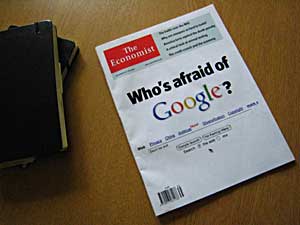I must be going potty. Reason: I find myself in agreement with Simon Heffer, the carpet-chewing Torygraph columnist. He’s not impressed by the way the government has overridden the intelligent and measured stance taken by Mervyn King, Governor of the Bank of England, towards Northern Rock.
Taxpayers have now become bankers. At a stroke, the fundamentals of the capitalist creed on which many of us thought our economy was based are compromised. There is no price on risk, except that paid by the state with our money.
Many in the financial world have what we might call a conservative interpretation of the idea of lender of last resort, and so do I.
I think it was shared by the Governor of the Bank of England, Mervyn King. It was that the Bank will lend at an appropriately stiff interest rate to any solvent financial institution that has a temporary liquidity problem, so it can right itself.
This is roughly what Mr King said, and did, last week, when Northern Rock was given a cash lifeline. The Governor could, or should, have done no more.
He is not a political figure, and it would have been most improper for him to act as one. It would also have been most improper of him to extend the role of lender of last resort to an extreme that imperilled the very notion of capitalism. That is the sort of thing idiot politicians do and, by God, have they gone and done it.
Fearing, quite absurdly, a collapse in our banking system, with Weimar-style queues littering our high streets at almost every bank and building society, the Chancellor of the Exchequer decided to issue his blank cheque to the bankers of Britain.
They now, as I see it, have carte blanche to take the most awesome risks with the money of their depositors, knowing that if they goof badly, the taxpayer will compensate their aggrieved customers.
The funny thing was that as I watched the TV news the other night, with all that footage of people queueing outside Northern Rock branches, I was almost tempted to buy shares in the bank, on the grounds that they were bound to go back up. Which of course they will now do.
Needless to say, I did nothing about this startling insight. Sigh. Story of my life: I also knew that Google shares were grossly undervalued at $85 when the company floated on the stock market.
Jeff Randall has written an instructive piece on ” Ten lessons we can learn from the Rock that rolled downhill”.



